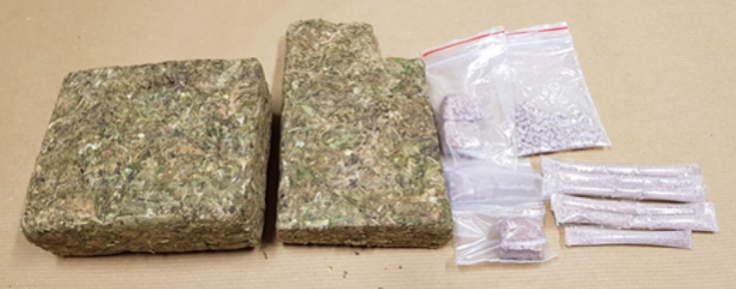People suffering from opioid addiction and chronic pain may have fewer cravings and less pain if they use both mindfulness techniques and medication for to emerge out of opioid dependence, according to researchers.
If you are an opioid addict, then you may want to try some rehabilitation techniques. The good news is that for those who suffer from substance addiction and continuous pain, you need to adopt mindful systems and therapy to get a release, according to a Rutgers team. The study looked at the mindfulness and methadone therapy's impact on 30 opioid and chronic pain patients.
Published in the journal Drug and Alcohol Dependence, the study describes mindfulness as a meditative practice. The practitioner needs to give his attention on only the current moment and absorb his thoughts, feelings and body sensations without any judgement.
Patients who underwent a combination therapy of methadone as well as mindfulness training displayed a 1.3 times enhanced control and management of their internal cravings. They also showed enhanced pain and stress management and a positive outlook on life. However, hey felt the pain of cravings more than others who received only normal methadone therapy and counselling.

"Methadone maintenance therapy (MMT) has been an effective form of medication treatment for opioid use disorder," said Associate Professor Nina Cooperman, a clinical psychologist in the Division of Addiction Psychiatry at Rutgers Robert Wood Johnson Medical School. "However, nearly half of individuals on MMT continue to use opioids during treatment or relapse with six months."
While opioid addicts suffer from chronic pain, anxiety and depression even on methadone maintenance, patients who undergo mindfulness-based, non-drug therapy give better and more positive treatment.
Researchers said that mindfulness-based training could support opioids addicts and enhance their self-awareness as well as self-control over cravings. They also showed that they could be less reactive to emotional and physical pain.
"As such, behavioral therapies that ameliorate chronic pain and enhance positive affect may serve as useful adjuncts to MMT. This analysis of ecological momentary assessment (EMA) data from a Stage 1 randomized clinical trial examined effects of Mindfulness-Oriented Recovery Enhancement (MORE) on opioid craving, pain, and positive affective state," wrote the researchers.
The addicts were also taught to shift the negativity of their thought patterns and enjoy pleasant events as well as moments that might make them regulate their emotions and savour more enjoyment in the present.
Mindfulness, therefore, is an important method that has received a lot of attention from scientists.








